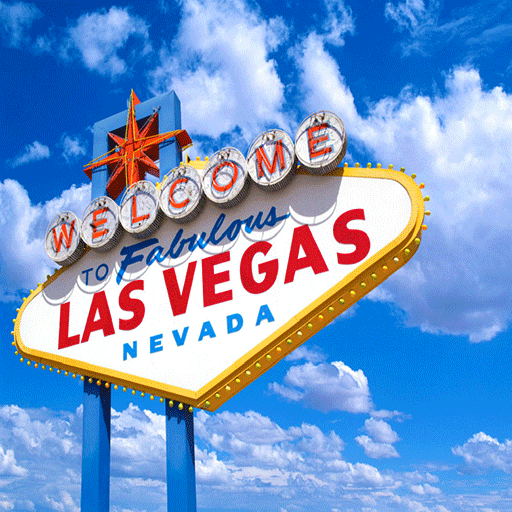Mama’s don’t let your babies grow up to be DJs or journalism majors. Your kids will soon after choosing to be in radio or television or journalism become dead broke and they will come begging for you as parents to let them move back in with you. Stop them before they make a terrible career mistake!
You probably have at least heard of Kiplinger, a publisher located in Washington, DC that provides business forecasts and personal finance advice. Perhaps you’ve read their content online. It is worth noting that this company has survived since 1920. I think Kiplinger deserves your trust and confidence when it comes to forecasting financial issues for you, personally, and for business entities in general.
Here I cite a 2017 Kiplinger analysis entitled “10 Worst Jobs for the Future.”
Kiplinger warns young people at the start of their career to steer clear of the radio and television industries. This comes as number 5 of 12 such warnings worth knowing about.
A projected decline of 10% (ten percent) in available jobs up through the year 2026 is forecast. The median annual salary of $32,283 is cited for radio and television announcers in the Kiplinger analysis.
A far worse fate than suffering through the indignities of that very low salary level you can expect is this Kiplinger explanation as to why you should steer clear of such careers in the first place:
“More radio disc jockeys, talk show hosts and podcasters are under threat of being silenced. Consolidation of radio and television stations, as well as the increased use of syndicated programming, limit the need for these kinds of workers. Plus, streaming music services offer fierce competition to radio stations and their workers. On the upside, online radio stations may provide new opportunities for announcers. If you’re committed to this career track, consider addressing even smaller audiences and becoming a party DJ or emcee. These other types of announcers make up a small field of just 17,326 workers currently, but are expected to grow their ranks 6.0% by 2026. They typically earn slightly less with a median $32,177 a year, but only require a high school diploma to get started.”
Why I’m writing this commentary needs to be explained clearly to you right now: I chose to seek a career on the air in radio back in the year 1970 when I was not yet old enough legally to buy alcohol. More of less four years later I was let go from that amazingly thrilling gig in the Los Angeles radio market, which the second-largest in the United States. My use of my voice lacked sufficient talent for an on-air career in the radio industry in Los Angeles. That stunning E-Ticket ride in Hollywood on Sunset Boulevard was fast, unpredictable, and, entirely too short.
After I was not talented enough to keep a radio job in the Los Angeles market, I tried to work (part time) in the strictly dead-end radui markets in both Eureka, California and Bloomington, Indiana. Working in both of those markets proved to be exceedingly depressing compared to working in the Los Angeles market.
 My dear friend Evan Haning wrote in 2011 for the Foreword to my book KHJ, Los Angeles: Boss Radio Forever that the profession has disappeared. That was more than one decade ago.
My dear friend Evan Haning wrote in 2011 for the Foreword to my book KHJ, Los Angeles: Boss Radio Forever that the profession has disappeared. That was more than one decade ago.
Evan Haning always was a man ahead of his time. And, Evan Haning is the ONLY person I knew personally who made it on the air in radio over the long stretch. Compared to me only being on the air in Hollywood at some rock and roll station for a very short while, Evan Haning, who had modest beginnings on the air in the dreaded San Luis Obispo, California radio market, made it from a success in the Los Angeles radio to the crucial Washington, DC radio market and he did so within the cut-throat all-news radio business there. He is one of the few living radio heroes I have.
Pay careful attention to my commentary here: It makes sense for you NOT to go after a profession that is already faded from our culture. I urge you NOT to pursue a career in the radio or television industries. I believe what Kiplinger is saying. So, should you.
You may want to go get a bachelor’s degree like I did in Journalism from Cal Poly San Luis Obispo. But, do not for one minute believe that being on the air at KCPR radio at Cal Poly actually will prepare you to make a living in a career on the air elsewhere. Read about my own KCPR radio at Cal Poly experiences as a possible guide to what may happen to you if you go that route.
Remember that ANY bachelor’s degree anywhere will do the basic minimum—train you to learn how to use your mind effectively. Just do not expect a financial payback for all the dollars that you or your parents invest in your undergraduate education if you choose a major such as journalism that is declining in job prospects. You will need more than merely a bachelor’s degree. You will need a top-notch graduate degree or two from highly-reputable universities that are expensive and not at all easy to get into.
Ironically, now in the wake of President Donald Trump’s claims about so-called “fake news,” which is, itself, a false claim by Trump that does not stand up to the test of reason, skilled and talented journalists are needed perhaps more than ever before. But, the reality is this: Skills can be taught during an undergraduate or graduate degree program, yes. Getting a bachelor’s degree in journalism won’t give you talent that you don’t already have within you. And seeking a career on the air on radio or television may just ruin you financially even if you go the extra distance to get graduate degrees. You don’t want to beg mommy and daddy to let you move back in with them after you are 30. Mommy will do your laundry. Daddy will curse you under his breath while he gets loaded on adult beverages at the dinner table. And, while your rent will be free, you will end up not being able to look yourself in the mirror for the rest of your life.
These are my opinions. Your mileage may vary.
Boss Radio Links:
Boss Radio Forever (main page)
Archives of Boss Radio Forever
College Radio KCPR
Gallery of Photographs
Hollywood Rock and Roll Radio
KHJ Music
KHJ Timeline
My Work in the Radio Industry
Studying Radio
Back to top of page.






 My dear friend Evan Haning wrote in 2011 for the Foreword to my book
My dear friend Evan Haning wrote in 2011 for the Foreword to my book